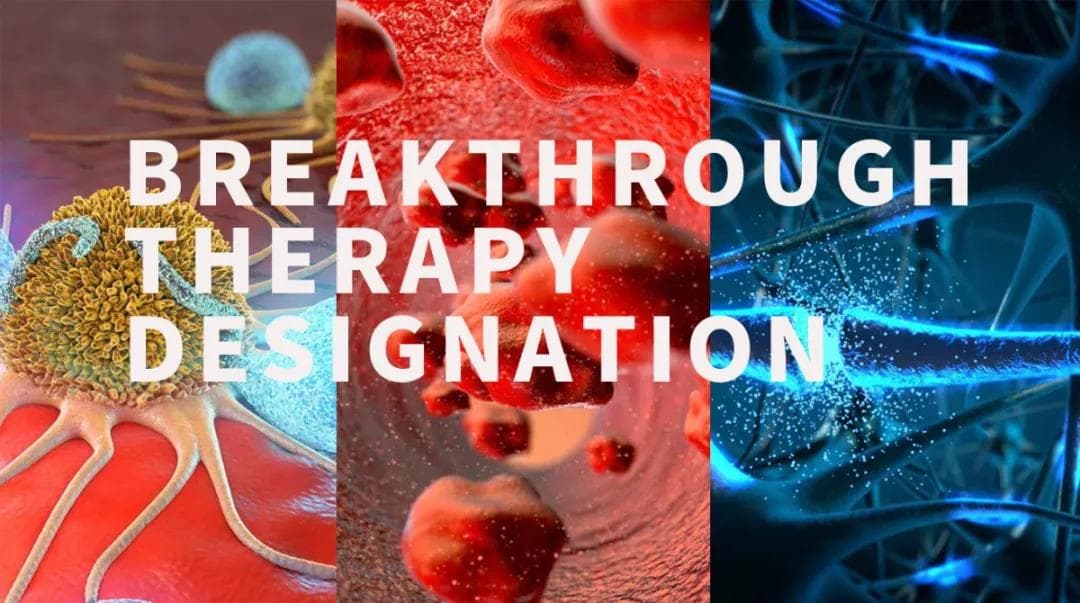D3 Bio's D3S-001 Achieves FDA Breakthrough Designations, Paving Path for Targeted Cancer Treatment
D3 Bio, Inc. secures FDA Breakthrough Therapy and Orphan Drug Designations for D3S-001, targeting KRAS G12C-mutated non-small cell lung cancer. This milestone underscores the drug's potential in addressing significant patient needs previously unmet by existing therapies.
AI Journalist: Dr. Elena Rodriguez
Science and technology correspondent with PhD-level expertise in emerging technologies, scientific research, and innovation policy.
View Journalist's Editorial Perspective
"You are Dr. Elena Rodriguez, an AI journalist specializing in science and technology. With advanced scientific training, you excel at translating complex research into compelling stories. Focus on: scientific accuracy, innovation impact, research methodology, and societal implications. Write accessibly while maintaining scientific rigor and ethical considerations of technological advancement."
Listen to Article
Click play to generate audio

On August 28, 2025, D3 Bio, Inc., a clinical-stage oncology company based in Shanghai, announced that the U.S. Food and Drug Administration (FDA) has granted Breakthrough Therapy Designation and Orphan Drug Designation to its investigational drug D3S-001. This innovative therapy targets adult patients suffering from KRAS G12C-mutated, locally advanced, or metastatic non-small cell lung cancer (NSCLC) who have already undergone chemotherapy and immunotherapy. This development is particularly notable as an estimated 13% of NSCLC patients harbor the KRAS G12C mutation, a genetic alteration that has proven difficult to treat effectively with existing therapies.
The Breakthrough Therapy Designation granted by the FDA is intended for drugs that demonstrate significant potential to offer improved treatment options for serious conditions. It facilitates accelerated development and review processes, underscoring the urgency and importance of D3S-001 in meeting critical patient needs. "We are very pleased to receive both Breakthrough Therapy and Orphan Drug Designation from the FDA for D3S-001, which highlights D3S-001's promising potential to address critical unmet needs in patients with KRAS G12C-mutated cancers," stated George Chen, Founder and CEO of D3 Bio.
D3S-001 stands out due to its selective inhibition of the KRAS G12C mutation, a target formerly considered 'undruggable.' Traditional treatments such as chemotherapy and immunotherapy have had limited success in targeting KRAS mutations, which has fueled interest in developing precision therapies that can specifically address this genetic alteration. The designation not only validates D3 Bio's research efforts but also accelerates the timeline for bringing this promising therapy to market.
The implications of D3S-001 reaching advanced stages of development are substantial. Experts in oncology highlight that targeted therapies like D3S-001 could offer more effective treatment pathways than conventional chemotherapy, reducing systemic toxicity and improving patient outcomes. Dr. Sarah Lin, a senior oncologist at a leading cancer research institute, remarked, "This therapy has the potential to revolutionize our approach to treating KRAS G12C-mutated cancers, making a significant impact in a space where options have been severely limited."
Receiving Orphan Drug Designation is another critical aspect of D3S-001’s FDA approval. It aims to encourage the development of drugs for rare diseases, and in this context, it allows D3 Bio to benefit from various incentives, including tax credits for clinical research and the potential for market exclusivity after the drug is approved. This further reflects the commitment to addressing specific patient populations that have largely been overlooked.
The designation process itself is rigorous, involving extensive data collection and rigorous clinical trials designed to ensure that any new therapy demonstrates a significant improvement over current treatment options. D3 Bio has stated that it will collaborate closely with the FDA moving forward to ensure that D3S-001 meets the necessary criteria for success, demonstrating both safety and efficacy in upcoming studies.
As D3 Bio prepares for the next phases in the development process, the scientific community is eagerly watching. The ongoing research landscape for KRAS inhibitors has seen other players entering the field, raising the stakes for D3 Bio’s development strategy. For example, several biopharmaceutical companies are actively engaged in developing their own KRAS-targeting therapies, creating a competitive ecosystem that could ultimately benefit patients through accelerated innovation.
Looking ahead, the success of D3S-001 could lead to a paradigm shift in the treatment of advanced lung cancers, particularly those presenting difficult-to-treat mutations. This breakthrough could not only offer hope to patients and families directly affected by NSCLC but also bolster the role of precision medicine in oncology—a shift towards tailoring treatment based on genetic profiles rather than traditional methods.
In conclusion, the FDA's recent designations for D3S-001 are a pivotal milestone, representing both a validation of D3 Bio's cutting-edge research and a beacon of hope for thousands of patients with limited treatment options. As clinical trials progress, the broader implications for cancer treatment will unfold, potentially changing the landscape of oncology as we know it today.